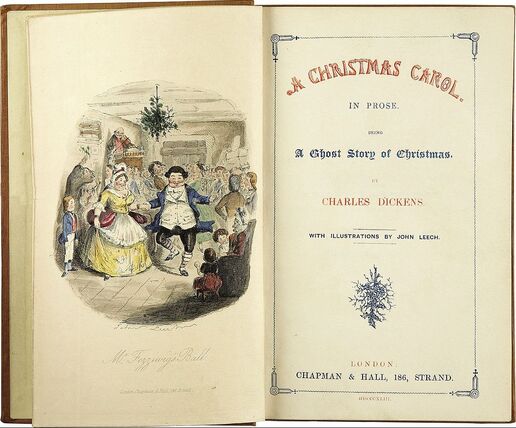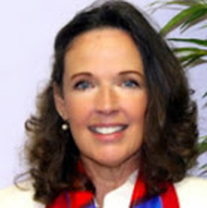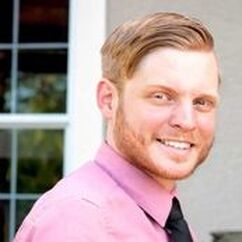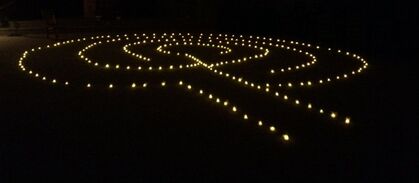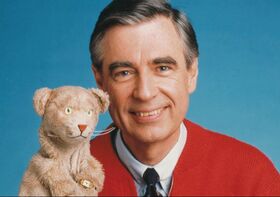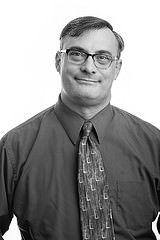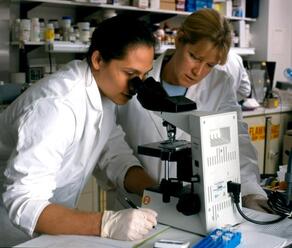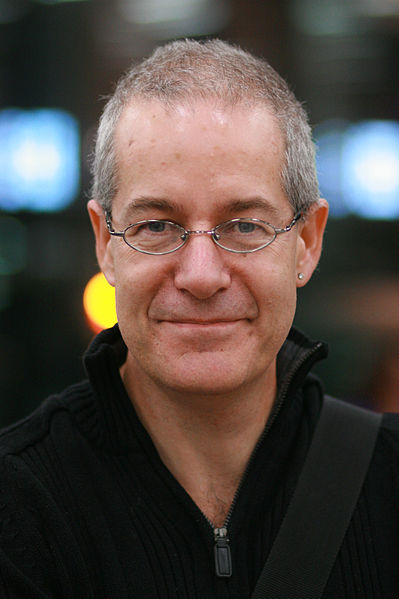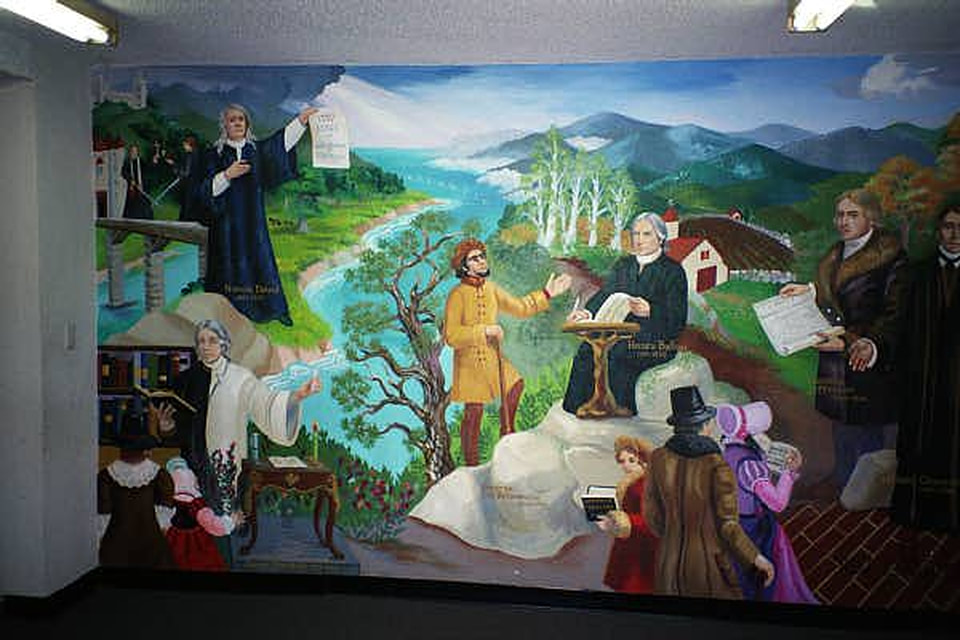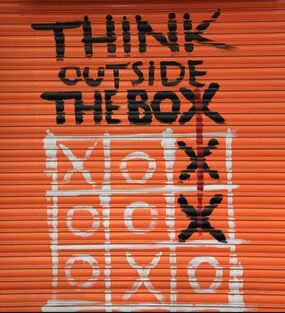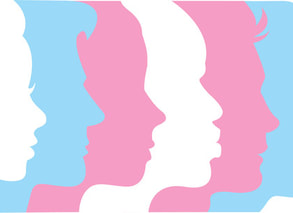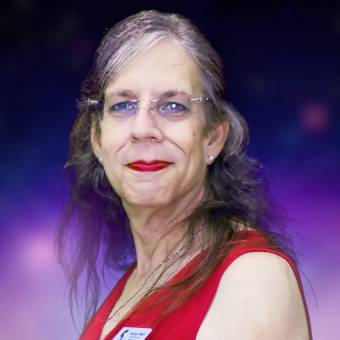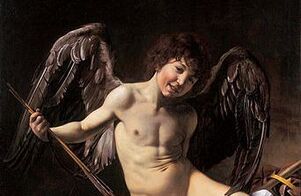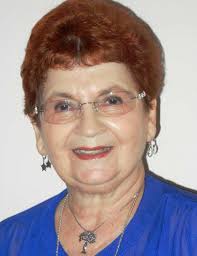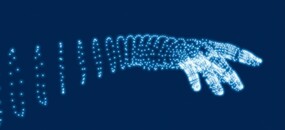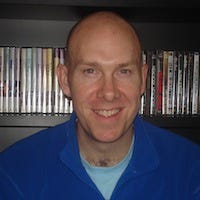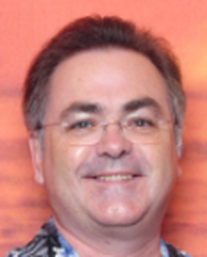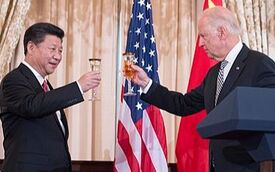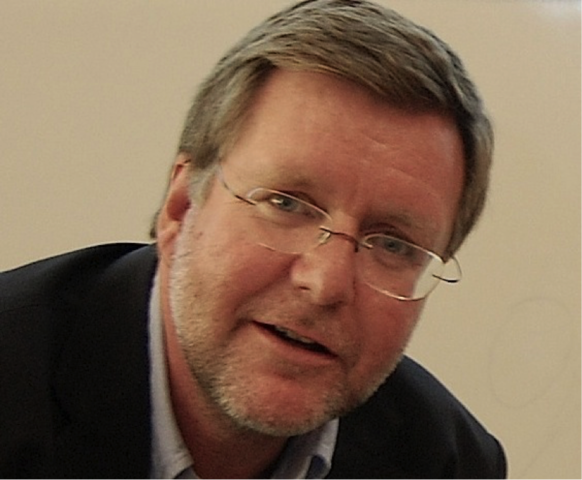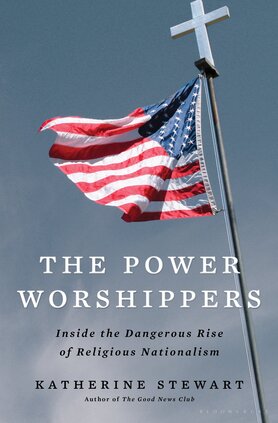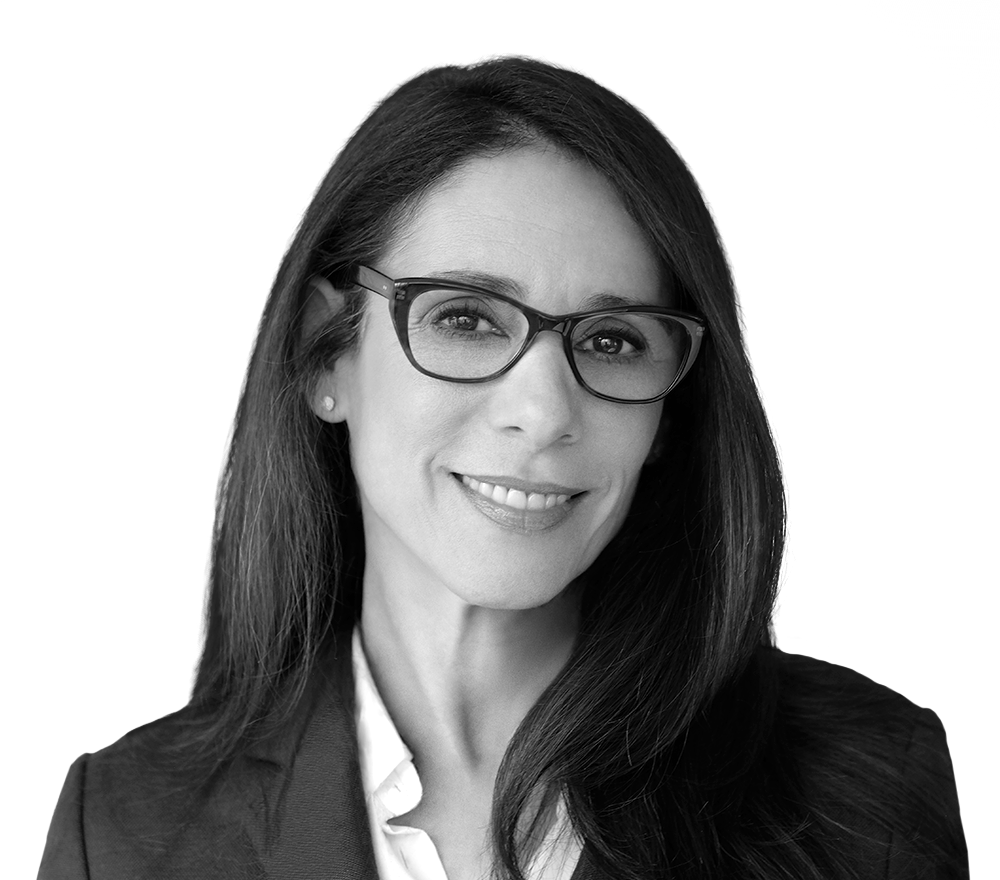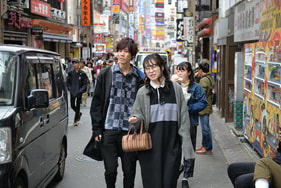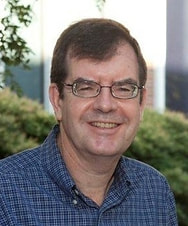2021 Services: see below
Zoom meetings were live and not recorded.
Light the Chalice services are audio recordings of whole services.
Click here for 2022 Services
Click here for 2020 Services
Click here for 2019 Sermons
For 2018 and earlier sermons:
Click here for 2018 Sermons page and
click here for the newsletters page with earlier sermons.
Zoom meetings were live and not recorded.
Light the Chalice services are audio recordings of whole services.
Click here for 2022 Services
Click here for 2020 Services
Click here for 2019 Sermons
For 2018 and earlier sermons:
Click here for 2018 Sermons page and
click here for the newsletters page with earlier sermons.
Friday, December 24, Christmas Eve, 6 pm:
Join us for an adaptation of Unitarian Charles Dickens’ beloved tale. The music will be excellent. Our friends and members will become characters in the play. All will learn something new, and we promise, a chuckle or two. (Online and in-person.)
Tuesday, December 21, 7 pm – 8pm
|
Illuminated Labyrinth
In honor of the Winter Solstice, we will construct an illuminated labyrinth on Friendship Fellowship grounds. We will open with a reading from the four directions and provide time for people to walk the path toward the center and back out again in quiet meditation. As the season turns, so shall we! (In-person only.)
|
 Photo by Volodymyr Hryshchenko via Unsplash
Photo by Volodymyr Hryshchenko via Unsplash
December 12:
Blue Holiday
Sermon by Rev. Amy Kindred
Although the past year and a half has provided new ways of remaining connected to others and to finding different occasions of joy, we simply can’t move toward a time of festivities without acknowledging and naming our losses. Maybe you have had to say good-bye to a loved one. Maybe you have had a dream dissolve. Maybe you have experienced troubles in a close relationship with a friend or family member. During this contemplative service, we will acknowledge and name the pain. If you desire, you may bring a photo of a loved one you have lost and/or are thinking about this holiday season.
Blue Holiday
Sermon by Rev. Amy Kindred
Although the past year and a half has provided new ways of remaining connected to others and to finding different occasions of joy, we simply can’t move toward a time of festivities without acknowledging and naming our losses. Maybe you have had to say good-bye to a loved one. Maybe you have had a dream dissolve. Maybe you have experienced troubles in a close relationship with a friend or family member. During this contemplative service, we will acknowledge and name the pain. If you desire, you may bring a photo of a loved one you have lost and/or are thinking about this holiday season.
 Photo by Roberto Nickson via Unsplash
Photo by Roberto Nickson via Unsplash
December 12:
Hurry Up and Wait
Sermon by Rev. Amy Kindred
Make the cookies then wait for them to bake. Rush to the airport then wait to be called for boarding. Get busy and clean the house then wait for company to arrive. How do you navigate the bustle of the season without losing the treasure of the experience of “wise silence?”
Hurry Up and Wait
Sermon by Rev. Amy Kindred
Make the cookies then wait for them to bake. Rush to the airport then wait to be called for boarding. Get busy and clean the house then wait for company to arrive. How do you navigate the bustle of the season without losing the treasure of the experience of “wise silence?”
 Photo by BBC Creative via Unsplash
Photo by BBC Creative via Unsplash
December 5:
What is Secular?
What is Sacred?
Sermon by Rev. Amy Kindred
As the winter festivities begin - it appears that there are 14 holidays celebrated between November 20th and January 24th- it prompts one to explore what is secular and what is not. This is the 8th day of Hanukkah.
What is Secular?
What is Sacred?
Sermon by Rev. Amy Kindred
As the winter festivities begin - it appears that there are 14 holidays celebrated between November 20th and January 24th- it prompts one to explore what is secular and what is not. This is the 8th day of Hanukkah.
Greg Cavenaugh is a lecturer and past department chair of Communication Studies at Rollins College in Winter Park, Florida. His research and teaching interests focus on inviting diversity and inclusion for marginalized community members through an appreciation of multiple communication styles and cultural norms. He previously spoke at Friendship Fellowship on the topic of "Sexuality and Spirituality" in 2014, and he is excited to return.

November 21:
A Garden of Gratitude
Sermon by Rev. Amy Kindred, Minister
Research reveals that gratitude can improve general well-being, increase resilience, strengthen social relationships, and reduce stress and depression. It also provides one a greater capacity to experience joy and positive emotions.
A Garden of Gratitude
Sermon by Rev. Amy Kindred, Minister
Research reveals that gratitude can improve general well-being, increase resilience, strengthen social relationships, and reduce stress and depression. It also provides one a greater capacity to experience joy and positive emotions.

November 14:
Honoring Native American Wisdom
Sermon by Rev. Amy Kindred
Were it not for those whose steps were imprinted on our sands long before the Europeans arrived, you and I would not be here. Let us pause to remember.
Honoring Native American Wisdom
Sermon by Rev. Amy Kindred
Were it not for those whose steps were imprinted on our sands long before the Europeans arrived, you and I would not be here. Let us pause to remember.
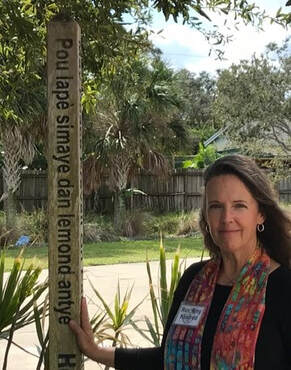
November 7:
Peace Pole
Sermon by Rev. Amy Kindred
Peace Poles remind us to think, speak and act in the spirit of peace and harmony. What is the story behind the Peace Pole on Friendship Fellowship grounds?
Peace Pole
Sermon by Rev. Amy Kindred
Peace Poles remind us to think, speak and act in the spirit of peace and harmony. What is the story behind the Peace Pole on Friendship Fellowship grounds?
October 31:
An Old Celtic Tradition
Sermon by Rev. Amy Kindred
If you celebrate Halloween today, you are taking part in a holiday
tradition that has survived for more than 6,000 years. What a treat!!
llustration: Snap-Apple Night, painted by Irish artist Daniel Maclise in 1833. It was inspired by a Halloween party he attended in Blarney, Ireland, in 1832.
The caption in the first exhibit catalogue:
There Peggy was dancing with Dan
While Maureen the lead was melting,
To prove how their fortunes ran
With the Cards could Nancy dealt in;
There was Kate, and her sweet-heart Will,
In nuts their true-love burning,
And poor Norah, though smiling still
She'd missed the snap-apple turning.
On the Festival of Hallow Eve.
An Old Celtic Tradition
Sermon by Rev. Amy Kindred
If you celebrate Halloween today, you are taking part in a holiday
tradition that has survived for more than 6,000 years. What a treat!!
llustration: Snap-Apple Night, painted by Irish artist Daniel Maclise in 1833. It was inspired by a Halloween party he attended in Blarney, Ireland, in 1832.
The caption in the first exhibit catalogue:
There Peggy was dancing with Dan
While Maureen the lead was melting,
To prove how their fortunes ran
With the Cards could Nancy dealt in;
There was Kate, and her sweet-heart Will,
In nuts their true-love burning,
And poor Norah, though smiling still
She'd missed the snap-apple turning.
On the Festival of Hallow Eve.

October 24:
Visual Cues and Belief
Sermon by Rev. Amy Kindred
Carl Jung stated, "Symbols serve to lead to a deeper meaning that cannot be adequately communicated otherwise...a symbol always stands for something more than its obvious and immediate meaning." Looking through an anthropological lens, we will explore how humans are attracted to symbols.
Visual Cues and Belief
Sermon by Rev. Amy Kindred
Carl Jung stated, "Symbols serve to lead to a deeper meaning that cannot be adequately communicated otherwise...a symbol always stands for something more than its obvious and immediate meaning." Looking through an anthropological lens, we will explore how humans are attracted to symbols.

October 10:
Love's Ability to Transcend
Sermon by Rev. Amy Kindred
There is a long history of UU writers. Join us as we examine the power of words.
Love's Ability to Transcend
Sermon by Rev. Amy Kindred
There is a long history of UU writers. Join us as we examine the power of words.
October 3:
Our UU Lineage
Sermon by Rev. Amy Kindred
Who are the intriguing people in our UU history? How are we connected? What will be our legacy?
Pictured below is a mural at the Unitarian Community Church of Santa Monica, California, photographed by Rich Puchalsky.
Our UU Lineage
Sermon by Rev. Amy Kindred
Who are the intriguing people in our UU history? How are we connected? What will be our legacy?
Pictured below is a mural at the Unitarian Community Church of Santa Monica, California, photographed by Rich Puchalsky.
Kathryn Hagen, from the Brevard County area, will discuss issues related to the transgender experience. She spoke one evening for our social justice committee. Many were immediately enchanted by her demeanor!
Kathryn Hagen is a Midwestern woman who was transplanted here on the Space Coast at the turn of the millennium. After years in the frozen tundra, it was here in the sunshine state that she would finally bloom. For most of her life, her neighbors, co-workers, even her own parents knew her by a different name and as a different gender.
What came as a surprise to everyone else was anything but for her. Her truth was something that she had run from, struggled with, denied, hoped and even prayed would go away, and somehow managed to keep bottled up for almost four decades. Ultimately though, she could run no longer and had to turn and face the reality of her existence. Just over two years ago she uttered the words aloud for the first time, “I am transgender.”
Since that day her life has changed in ways she could never have predicted. She has found her calling as an advocate for the LGBTQ+ community. She is the board secretary for the PFLAG Melbourne Space Coast chapter, a community advocate and board secretary for SPEKTRUM Health and she represents SPEKTRUM on the board of directors of the Melbourne Regional Chamber of Commerce as well as the Space Coast Equality Coalition.
Recently she fought alongside coalition partners to preserve Brevard Public Schools policies that protect LGBTQ+ students from discrimination. The accomplishment that she is most proud of though is helping to open SPEKTRUM Health’s new clinic location in Melbourne that is bringing high quality, affirming, health care to the LGBTQA+ residents of Brevard County.
Kathryn Hagen is a Midwestern woman who was transplanted here on the Space Coast at the turn of the millennium. After years in the frozen tundra, it was here in the sunshine state that she would finally bloom. For most of her life, her neighbors, co-workers, even her own parents knew her by a different name and as a different gender.
What came as a surprise to everyone else was anything but for her. Her truth was something that she had run from, struggled with, denied, hoped and even prayed would go away, and somehow managed to keep bottled up for almost four decades. Ultimately though, she could run no longer and had to turn and face the reality of her existence. Just over two years ago she uttered the words aloud for the first time, “I am transgender.”
Since that day her life has changed in ways she could never have predicted. She has found her calling as an advocate for the LGBTQ+ community. She is the board secretary for the PFLAG Melbourne Space Coast chapter, a community advocate and board secretary for SPEKTRUM Health and she represents SPEKTRUM on the board of directors of the Melbourne Regional Chamber of Commerce as well as the Space Coast Equality Coalition.
Recently she fought alongside coalition partners to preserve Brevard Public Schools policies that protect LGBTQ+ students from discrimination. The accomplishment that she is most proud of though is helping to open SPEKTRUM Health’s new clinic location in Melbourne that is bringing high quality, affirming, health care to the LGBTQA+ residents of Brevard County.
 The official logo of the Unitarian Universalist Association, based upon the flaming chalice motif.
The official logo of the Unitarian Universalist Association, based upon the flaming chalice motif.
September 12:
What's a UU?
Sermon by Rev. Amy Kindred
In Unitarian Universalism, you can bring your whole self: your full identity, your questioning mind, your expansive heart. What's more, you are from a long line of folks much like you.NOTE: Recognizing that many Unitarian Universalists also identify as Jewish, we will pause to highlight the high holy days.
For the Zoom link or to be put on our email list, please contact [email protected].
What's a UU?
Sermon by Rev. Amy Kindred
In Unitarian Universalism, you can bring your whole self: your full identity, your questioning mind, your expansive heart. What's more, you are from a long line of folks much like you.NOTE: Recognizing that many Unitarian Universalists also identify as Jewish, we will pause to highlight the high holy days.
For the Zoom link or to be put on our email list, please contact [email protected].
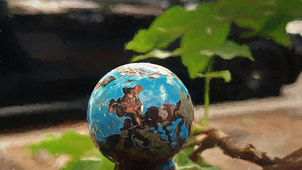
September 5:
What's Possible?
Our Green Earth
Sermon by Rev. Amy Kindred
In these times of climate change, where do we find hope and possibility for the future?
What's Possible?
Our Green Earth
Sermon by Rev. Amy Kindred
In these times of climate change, where do we find hope and possibility for the future?
 Photo by Ramy Kabalan via Unsplash
Photo by Ramy Kabalan via Unsplash
August 22:
It's How We Say It That Counts
Sermon by Steve Atlas
Too often, we focus just on what we want to say, and not the most effective way to share our message. I will spotlight a few examples of how this can work at home, work, and other life situations, and share a few tips that have helped others. There will be an opportunity to share personal experiences and how the way someone said something affected the way you responded.
It's How We Say It That Counts
Sermon by Steve Atlas
Too often, we focus just on what we want to say, and not the most effective way to share our message. I will spotlight a few examples of how this can work at home, work, and other life situations, and share a few tips that have helped others. There will be an opportunity to share personal experiences and how the way someone said something affected the way you responded.
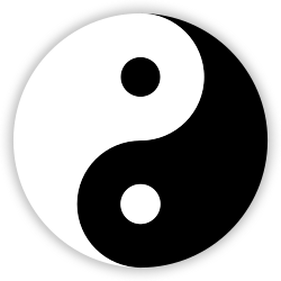
August 1:
A Conversation Between Life and Death
Sermon by Rev. Amy Kindred and Adam Byrn-Tritt
All humans ponder why bad things happen, especially
out-of-the-ordinary natural destruction events such as tsunamis and more. What would happen if death and life were personified and a conversation ensued? Join us for an interesting dialogue between fictional characters.
A Conversation Between Life and Death
Sermon by Rev. Amy Kindred and Adam Byrn-Tritt
All humans ponder why bad things happen, especially
out-of-the-ordinary natural destruction events such as tsunamis and more. What would happen if death and life were personified and a conversation ensued? Join us for an interesting dialogue between fictional characters.
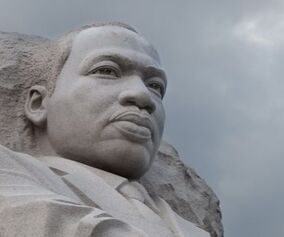 Raffaele Nicolussi via Unsplash
Raffaele Nicolussi via Unsplash
July 25:
8th Principle Project
Rev. Amy Kindred
Our 7 Principles were last updated in 1987. Today, many of our member congregations are contemplating and some have adopted an 8th Principle. Join us to learn more about yet another chapter in the history of our Living "breathing" Unitarian Universalist Tradition.
8th Principle Project
Rev. Amy Kindred
Our 7 Principles were last updated in 1987. Today, many of our member congregations are contemplating and some have adopted an 8th Principle. Join us to learn more about yet another chapter in the history of our Living "breathing" Unitarian Universalist Tradition.
 Photo by Oscar Sutton via Unsplash
Photo by Oscar Sutton via Unsplash
July 18:
My Life as a Dog
Sermon by Scott Tilley
The COVID-19 pandemic has been an experience unlike anything we’ve had in modern times. It’s caused us to minimize social contact. It’s caused disruptions in how we work, with a shift to remote offices at home. It’s changed how we learn at school, with students being forced to move to online learning. It really has turned our lives, our society, and our economy upside down.
But there have been a few positive things that have come out of COVID-19. One of the most important lessons for me personally has been how to live like my dog. I mean learning to focus on the simple things in life, which are the most important things we should address every day.
My dog, Watson, looks forward to his daily walks, and I’ve learned to look forward to our daily excursions as well. He enjoys his food and treats, and I’ve been taking cooking lessons. He likes going for swims in the pool, and I’ve been trying to exercise more. He welcomes me home with such joy that it feels like I’ve been away for months. Imagine if we did that for our family members every day. Showing emotional exuberance might help us all.
My Life as a Dog
Sermon by Scott Tilley
The COVID-19 pandemic has been an experience unlike anything we’ve had in modern times. It’s caused us to minimize social contact. It’s caused disruptions in how we work, with a shift to remote offices at home. It’s changed how we learn at school, with students being forced to move to online learning. It really has turned our lives, our society, and our economy upside down.
But there have been a few positive things that have come out of COVID-19. One of the most important lessons for me personally has been how to live like my dog. I mean learning to focus on the simple things in life, which are the most important things we should address every day.
My dog, Watson, looks forward to his daily walks, and I’ve learned to look forward to our daily excursions as well. He enjoys his food and treats, and I’ve been taking cooking lessons. He likes going for swims in the pool, and I’ve been trying to exercise more. He welcomes me home with such joy that it feels like I’ve been away for months. Imagine if we did that for our family members every day. Showing emotional exuberance might help us all.
 Jay Castor via Unsplash
Jay Castor via Unsplash
July 11:
Messy Grace
Rev. Amy Kindred
This is the first Sunday morning that we are able to safely gather in-person back in Fellowship Hall since the pandemic closed the doors to our building in mid-March 2020. Although in differing measures, all of us have been affected by the trauma of navigating a dangerous disease. Peter Levine said, "The paradox of trauma is that it has both the power to destory and the power to transfrom and resurrect."
Messy Grace
Rev. Amy Kindred
This is the first Sunday morning that we are able to safely gather in-person back in Fellowship Hall since the pandemic closed the doors to our building in mid-March 2020. Although in differing measures, all of us have been affected by the trauma of navigating a dangerous disease. Peter Levine said, "The paradox of trauma is that it has both the power to destory and the power to transfrom and resurrect."
 Maude Frederique Lavoie via Unsplash
Maude Frederique Lavoie via Unsplash
July 4:
Barbecue
No morning service.
HOWEVER, please join us for a 5 pm barbecue on the fellowship grounds. Friendship Fellowship will provide the burgers, hot dogs and plant-based bratwursts. Please bring a lawn chair, (No worries if that is a hardship. We have chairs too!) your favorite beverage and a side dish to share. RSVP: [email protected] so we can get a count of how much to purchase.
Barbecue
No morning service.
HOWEVER, please join us for a 5 pm barbecue on the fellowship grounds. Friendship Fellowship will provide the burgers, hot dogs and plant-based bratwursts. Please bring a lawn chair, (No worries if that is a hardship. We have chairs too!) your favorite beverage and a side dish to share. RSVP: [email protected] so we can get a count of how much to purchase.
 Kuelli Kittus via Unsplash
Kuelli Kittus via Unsplash
June 27:
How Are We Now?
Rev. Amy Kindred
In times past when someone asked, “How are you?” one’s response immediately jumped to “fine, fine.” However, after experiencing pandemic times, we might want to rethink our response. Today’s message focuses on how the experience of trauma affects one’s sense of well-being.
How Are We Now?
Rev. Amy Kindred
In times past when someone asked, “How are you?” one’s response immediately jumped to “fine, fine.” However, after experiencing pandemic times, we might want to rethink our response. Today’s message focuses on how the experience of trauma affects one’s sense of well-being.
|
|
Sunday Service June 27 at noon:
Circle 'Round for Justice, Healing, Courage We joined the largest annual gathering of UUs joining in worship. This powerful, communal worship experience was streamed on our homepage on Sunday, June 27, 2021 at noon. Members of the public are welcome to view the service. Normally, we would project it on a screen inside our building. However, this year you will be able to pop in to the national service of worship via the internet from the comfort of your own home right here on our homepage. Read more about GA on our General Assembly 2021 page... |

June 20:
Papas and the Power of Play
Mark Twain said, ““When I was a boy of 14, my father was so ignorant, I could hardly stand to have the old man around. But when I got to be 21, I was astonished at how much the old man had learned in seven years.” We will pause to recognize the wonderful contributions of fathers and father-like figures as well as the importance of play.
Photo by nci via Unsplash
Papas and the Power of Play
Mark Twain said, ““When I was a boy of 14, my father was so ignorant, I could hardly stand to have the old man around. But when I got to be 21, I was astonished at how much the old man had learned in seven years.” We will pause to recognize the wonderful contributions of fathers and father-like figures as well as the importance of play.
Photo by nci via Unsplash

June 13:
The Tao of Winnie the Pooh
Rev. Amy Kindred
A subtle sense of humor is part of the beauty and power of the Tao Te Ching. It’s also what makes the classic tales of Winnie the Pooh so wonderful.
The service will be livestreamed on Zoom for those unable to attend. Contact our Office Manager at [email protected] if you'd like to participate with us.
Photo by Disney
The Tao of Winnie the Pooh
Rev. Amy Kindred
A subtle sense of humor is part of the beauty and power of the Tao Te Ching. It’s also what makes the classic tales of Winnie the Pooh so wonderful.
The service will be livestreamed on Zoom for those unable to attend. Contact our Office Manager at [email protected] if you'd like to participate with us.
Photo by Disney
|
June 6:
A Time to Laugh Sermon by Rev. Amy Kindred How many UUs does it take to screw in a lightbulb? What do you get when you cross a UU with a Jehovah Witness? We will share these jokes and more and explore how outsiders might perceive Unitarian Universalists. Click the icon or the Download Fille link below to hear the sermon.
| |||||||
Sunday, May 30:
Live service on Zoom at 10:30 am
CHANGE TO SPEAKER THIS SUNDAY
Due to family issues our scheduled speaker for this Sunday, Dr. Matt Hauer, has had to cancel. In his place, and back by popular demand, is Dr. Scott Tilley.
Due to family issues our scheduled speaker for this Sunday, Dr. Matt Hauer, has had to cancel. In his place, and back by popular demand, is Dr. Scott Tilley.

The Threat of Ransomware
by Dr. Scott Tilley
Several people in our Fellowship have already been the target of cyberscams, so this is indeed a timely and relevant topic which needs to be addressed.
In Dr. Tilley's words: The recent Colonial Pipeline attack is just the latest in an increasing series of ransomware attacks on companies and individuals in our country. These are cybersecurity attacks where an attacker infiltrates a corporate network and encrypts (or deletes) the data so that it is unusable. The organization is forced to pay a digital ransom, usually using an untraceable currency like Bitcoin, to decrypt the data. Hospitals, schools, and major corporations are common targets. They have little choice but to pay the ransom. Colonial Pipeline paid nearly $5 million to restore their systems, and it caused serious disruption to the entire eastern seaboard for fuel delivery. This talk will discuss how these attacks are possible, how they are affecting our national infrastructure, and how we can can better defend against them. Contact our Office Manager at [email protected] if you'd like to participate with us. Photo by Michael Geiger via Unsplash.
by Dr. Scott Tilley
Several people in our Fellowship have already been the target of cyberscams, so this is indeed a timely and relevant topic which needs to be addressed.
In Dr. Tilley's words: The recent Colonial Pipeline attack is just the latest in an increasing series of ransomware attacks on companies and individuals in our country. These are cybersecurity attacks where an attacker infiltrates a corporate network and encrypts (or deletes) the data so that it is unusable. The organization is forced to pay a digital ransom, usually using an untraceable currency like Bitcoin, to decrypt the data. Hospitals, schools, and major corporations are common targets. They have little choice but to pay the ransom. Colonial Pipeline paid nearly $5 million to restore their systems, and it caused serious disruption to the entire eastern seaboard for fuel delivery. This talk will discuss how these attacks are possible, how they are affecting our national infrastructure, and how we can can better defend against them. Contact our Office Manager at [email protected] if you'd like to participate with us. Photo by Michael Geiger via Unsplash.
|
Scott Tilley is an emeritus professor at the Florida Institute of Technology, president and founder of the Center for Technology & Society, president and co-founder of Big Data Florida, Senior Fellow at the American Security Council Foundation, past president of INCOSE Space Coast, and a Space Coast Writers’ Guild Fellow. His recent books include Systems Analysis & Design (Cengage, 2020), Perspectives on Systems Engineering from Florida’s Space Coast (CTS Press, 2020), and PANDEMIC (Anthology Alliance, 2020). He wrote the “Technology Today” column for FLORIDA TODAY from 2010 to 2018. He holds a Ph.D. in computer science from the University of Victoria.
|
|
|
Donate to the Fellowship by clicking the Donate button to the left. Your support is needed and gratefully received.
|
Zoom Coffee Hour at 11:00 am

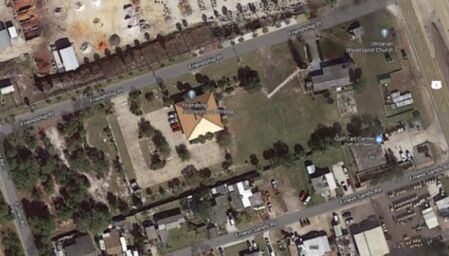 Photo: Google satellite view of the Fellowship's campus
Photo: Google satellite view of the Fellowship's campus
May 23:
Kitty's Garden
Sermon by Rev. Amy Kindred
In this our final episode of Light the Chalice podcast, we celebrate hearts that cherish a diversity of people who populate our planet and hands that lovingly care for plants of all kinds. Included is an interview with Kitty Linton, retiring volunteer caretaker of the grounds at Friendship Fellowship in Rockledge, Florida. Click here to listen to the podcast...
Following this podcast, plans are to change to a live-stream zoom format. A recording of the messages is to be posted here. Plans are also being made to return to holding in-person services in the following weeks and months. Details to follow.
Kitty's Garden
Sermon by Rev. Amy Kindred
In this our final episode of Light the Chalice podcast, we celebrate hearts that cherish a diversity of people who populate our planet and hands that lovingly care for plants of all kinds. Included is an interview with Kitty Linton, retiring volunteer caretaker of the grounds at Friendship Fellowship in Rockledge, Florida. Click here to listen to the podcast...
Following this podcast, plans are to change to a live-stream zoom format. A recording of the messages is to be posted here. Plans are also being made to return to holding in-person services in the following weeks and months. Details to follow.
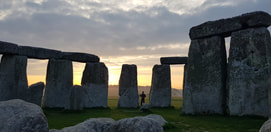 Stonehenge
Stonehenge
May 16:
From Stonehenge to Sagan
Sermon by Rev. Amy Kindred
We celebrate the idea that religion gains something from science.
Who in UU history has promoted the gifts of both?
Click here for the podcast...
From Stonehenge to Sagan
Sermon by Rev. Amy Kindred
We celebrate the idea that religion gains something from science.
Who in UU history has promoted the gifts of both?
Click here for the podcast...
 Photo by Cassidy Rowell via Unsplash
Photo by Cassidy Rowell via Unsplash
May 9:
No Womb Required
Sermon by Rev. Amy Kindred
Mother's Day was originally created as a plea for peace by all mothers. Today, we recognize the broader aspects of what it means "to nurture."
Click here for the podcast...
No Womb Required
Sermon by Rev. Amy Kindred
Mother's Day was originally created as a plea for peace by all mothers. Today, we recognize the broader aspects of what it means "to nurture."
Click here for the podcast...
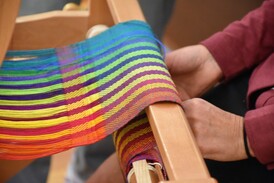
May 2:
Absence
of Violence
Sermon by Rev. Amy Kindred
The fabric of society is not finished. It is still "on the loom." - Thomas Merton
Click here to listen to the podcast...
Absence
of Violence
Sermon by Rev. Amy Kindred
The fabric of society is not finished. It is still "on the loom." - Thomas Merton
Click here to listen to the podcast...
Dr. Westad is a world-class scholar whose books include "Restless Empire - China and the World Since 1750" and "The Cold War - A World History." He has previously taught at Harvard and the University of Oslo. Westad speaks and writes in his native Norwegian, in addition to English, French, German, Mandarin and Russian. He is a Fellow of the British Academy and the Norwegian Academy of Science and Letters. He is a well known lecturer in several countries both on history and contemporary international affairs, especially with regard to China and East Asia.
Recommended reading: essay "The Sources of Chinese Conduct," in Foreign Affairs September/October 2019.
Photo of Westad: Fourhundredandtwentysix Creative Commons via Wikimedia Commons.
Recommended reading: essay "The Sources of Chinese Conduct," in Foreign Affairs September/October 2019.
Photo of Westad: Fourhundredandtwentysix Creative Commons via Wikimedia Commons.
|
|
April 18:
Introduction to Stoicism by Greg Lopez Mr. Lopez is the co-author of "A Handbook for New Stoics" along with Dr. Massimo Pigliucci (who will also speak to us later in the year). Greg is also the host of Stoic Camp New York. Lopez and Pugliucci rest their thesis on two Stoic tenets: that cultivating character (not material wealth, achievement or the actions of others) leads to a satisfying and virtuous life, and that focus should be placed on what is in one's control, not on what is outside one's influence. Join us for a live zoom discussion of this fascinating philosophy which meshes so well with our Unitarian principles. At left is a short video introduction to Stoicism and how to use its principles in everyday life. |
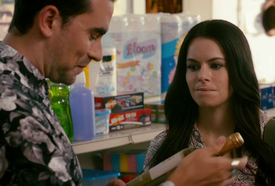
April 11:
Like the Wine, Not the Label
Sermon by Rev. Amy Kindred
In a popular Netflix series, Daniel Levy's character, left, explains his
affinity for wine and hints at so much more.
Click here to listen to the podcast...
Like the Wine, Not the Label
Sermon by Rev. Amy Kindred
In a popular Netflix series, Daniel Levy's character, left, explains his
affinity for wine and hints at so much more.
Click here to listen to the podcast...
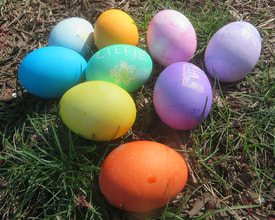
April 4:
Lessons Bestowed on a Jewish Teacher
Sermon by Rev. Amy Kindred
Spring is an appropriate time to recall the wise words of a Master teacher. Where did the most well known preacher of universal love acquire
such knowledge? You might be surprised!
Click here for the podcast...
Lessons Bestowed on a Jewish Teacher
Sermon by Rev. Amy Kindred
Spring is an appropriate time to recall the wise words of a Master teacher. Where did the most well known preacher of universal love acquire
such knowledge? You might be surprised!
Click here for the podcast...
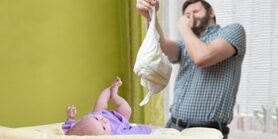 Photo: MomLovesBest.com
Photo: MomLovesBest.com
March 28:
Change is Certain, Sometimes Good
Sermon by Rev. Amy Kindred
As we emerge from the reality of life in a world pandemic, will we really "go back to a normal life?" It is doubtful. Will this almost certain fact be a bad thing? Click here to hear the podcast...
Change is Certain, Sometimes Good
Sermon by Rev. Amy Kindred
As we emerge from the reality of life in a world pandemic, will we really "go back to a normal life?" It is doubtful. Will this almost certain fact be a bad thing? Click here to hear the podcast...
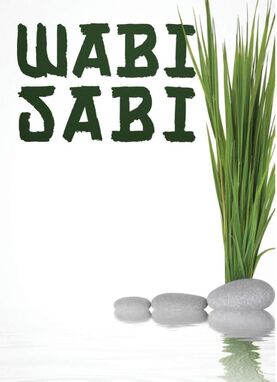 Cover art from Robert Miller's guide to Wabi-Sabi.
Cover art from Robert Miller's guide to Wabi-Sabi.
March 14:
A Wabi Sabi Life
Sermon by Rev. Amy Kindred
We all want a perfect, unbroken and untarnished existence. And yet, life that unfolds as we want and expect it to is really an illusion.
Click here to hear the podcast...
A Wabi Sabi Life
Sermon by Rev. Amy Kindred
We all want a perfect, unbroken and untarnished existence. And yet, life that unfolds as we want and expect it to is really an illusion.
Click here to hear the podcast...
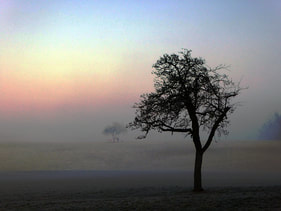
March 7:
From a Small Seed
Sermon by Rev. Amy Kindred
Using science to explore the wisdom and wonder of trees, we find valuable lessons about survival. "Before you know what kindness really is," wrote Naomi SHihab Nye, "you must lose things." With regard to how we treat the earth, losing short-sightedness and consumption based on immediate need is critical. Considering how we treat one another, letting go of assumptions and taking risks, will help to ensure that kindness is passed onto future generations. Click here to hear the podcast...
From a Small Seed
Sermon by Rev. Amy Kindred
Using science to explore the wisdom and wonder of trees, we find valuable lessons about survival. "Before you know what kindness really is," wrote Naomi SHihab Nye, "you must lose things." With regard to how we treat the earth, losing short-sightedness and consumption based on immediate need is critical. Considering how we treat one another, letting go of assumptions and taking risks, will help to ensure that kindness is passed onto future generations. Click here to hear the podcast...

February 21:
Woven Words
Sermon by Rev. Amy Kindred
Quick. Name your favorite love poem! Was it
about a friend, sweetheart, humanity, nature or something
as mundane as a favorite coffee cup?
Click here to hear the podcast...
Woven Words
Sermon by Rev. Amy Kindred
Quick. Name your favorite love poem! Was it
about a friend, sweetheart, humanity, nature or something
as mundane as a favorite coffee cup?
Click here to hear the podcast...
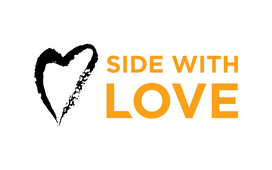
February 14:
Side With Love Sunday
Sermon by Rev. Amy Kindred
Sunday Service CHANGE: Join us on Zoom at 10:30 am on Sunday, February 14 for a One-Hour Online Service. Many Unitarian Universalist congregations will be watching the same UU Side With Love sponsored service with you.
What if to "side with love" meant making bold, faith-full choices? What if it were even a little bit scary? This worship service brings together worship leaders and musicians from across the country to offer hopeful, moving, challenging reminders about what we, as Unitarian Universalists, are called to do, and BE, in the world.
Side With Love Sunday
Sermon by Rev. Amy Kindred
Sunday Service CHANGE: Join us on Zoom at 10:30 am on Sunday, February 14 for a One-Hour Online Service. Many Unitarian Universalist congregations will be watching the same UU Side With Love sponsored service with you.
What if to "side with love" meant making bold, faith-full choices? What if it were even a little bit scary? This worship service brings together worship leaders and musicians from across the country to offer hopeful, moving, challenging reminders about what we, as Unitarian Universalists, are called to do, and BE, in the world.
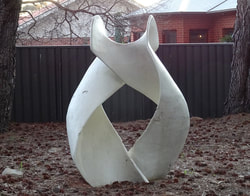
February 7:
Twisted Stories
Sermon by Rev. Amy Kindred
Honoring Black History month, what are the stories you
heard as a child and what is the truth in some of those twisted tales?
Click here to listen to the podcast...
Twisted Stories
Sermon by Rev. Amy Kindred
Honoring Black History month, what are the stories you
heard as a child and what is the truth in some of those twisted tales?
Click here to listen to the podcast...
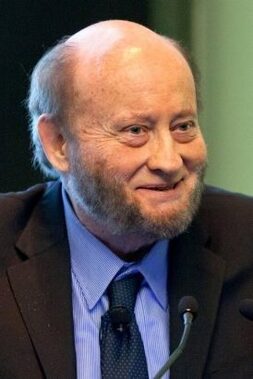 Dr. Ronald Inglehart
Dr. Ronald Inglehart
January 31:
Giving Up on God
Guest Speaker: Dr. Ronald Inglehart, Professor, University of Michigan
Dr. Inglehart wrote an article in "Foreign Affairs." In his research, he argues that economic development, state institutions and long peace since 1945 are reshaping human motivations in ways that have important implications for religion, economic behavior and the spread of democracy. With books and scholarly articles too numerous to list here, you are invited to google "Ronald F. Inglehart political scientist" for additional information.
Dr. Ronald Inglehart is a professor of political science and a research professor at the University of Michigan. He helped found the Euro-Barometer surveys and directs the World Value surveys, which has surveyed national samples of the populations of 97 countries containing almost 90% of the world's population. His research deals with changing belief systems and their impact on social and political change. His research argues that economic development, state institutions and the long peace since 1945 are reshaping human motivations in ways that have important implications for religion, economic behavior and the spread of democracy.
Dr. Inglehart has been a visiting professor and scholar in France, Germany, The Netherlands, Japan and numerous other countries. Dr. Inglehart has also served as a consultant to the State Department and the EU. He holds honorary doctorates from Germany, Belgium and Sweden and speaks French, German, Dutch, Spanish, Italian and Portuguese. His books and scholarly articles are too numerous to list here (google "Ronald F Inglehart political scientist" for additional listings).
Contact our Office Manager at [email protected] if you'd like to participate with us.
Giving Up on God
Guest Speaker: Dr. Ronald Inglehart, Professor, University of Michigan
Dr. Inglehart wrote an article in "Foreign Affairs." In his research, he argues that economic development, state institutions and long peace since 1945 are reshaping human motivations in ways that have important implications for religion, economic behavior and the spread of democracy. With books and scholarly articles too numerous to list here, you are invited to google "Ronald F. Inglehart political scientist" for additional information.
Dr. Ronald Inglehart is a professor of political science and a research professor at the University of Michigan. He helped found the Euro-Barometer surveys and directs the World Value surveys, which has surveyed national samples of the populations of 97 countries containing almost 90% of the world's population. His research deals with changing belief systems and their impact on social and political change. His research argues that economic development, state institutions and the long peace since 1945 are reshaping human motivations in ways that have important implications for religion, economic behavior and the spread of democracy.
Dr. Inglehart has been a visiting professor and scholar in France, Germany, The Netherlands, Japan and numerous other countries. Dr. Inglehart has also served as a consultant to the State Department and the EU. He holds honorary doctorates from Germany, Belgium and Sweden and speaks French, German, Dutch, Spanish, Italian and Portuguese. His books and scholarly articles are too numerous to list here (google "Ronald F Inglehart political scientist" for additional listings).
Contact our Office Manager at [email protected] if you'd like to participate with us.
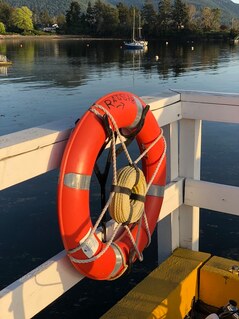
January 24:
Waters Flowing Home
Sermon by Rev. Amy Kindred
It's amazing how we find one another in these stormy times. May we be a buoy to one another, a life-saver to each other when the water churns.
Click here for the podcast...
Waters Flowing Home
Sermon by Rev. Amy Kindred
It's amazing how we find one another in these stormy times. May we be a buoy to one another, a life-saver to each other when the water churns.
Click here for the podcast...
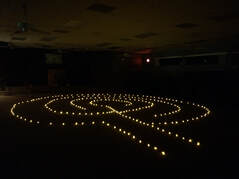
January 17:
The Labyrinth
Sermon by Rev. Amy Kindred
What is the symbolism for meandering the winding path toward a focal point? As we navigate the first month of the year, 2021, what are our hopes and dreams and what will we leave in the past?
Click here for the podcast.
The Labyrinth
Sermon by Rev. Amy Kindred
What is the symbolism for meandering the winding path toward a focal point? As we navigate the first month of the year, 2021, what are our hopes and dreams and what will we leave in the past?
Click here for the podcast.
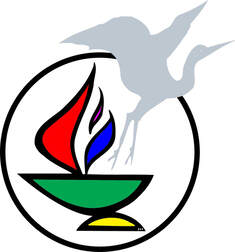
January 10:
The Good Steward
Sermon by Rev. Amy Kindred
What does it mean to care for something we love but don't own? For example, the founders of Friendship Fellowship "planted the seed" for our Unitarian Universalist community on the hill in Rockledge, Florida, long ago, but it is up to us to be intentional about preserving the fellowship for future generations. (This was a live presentation on zoom and not recorded.)
The Good Steward
Sermon by Rev. Amy Kindred
What does it mean to care for something we love but don't own? For example, the founders of Friendship Fellowship "planted the seed" for our Unitarian Universalist community on the hill in Rockledge, Florida, long ago, but it is up to us to be intentional about preserving the fellowship for future generations. (This was a live presentation on zoom and not recorded.)
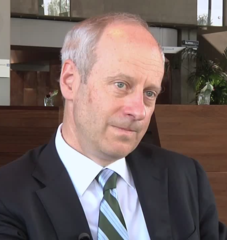 Dr. Michael Sandel
Dr. Michael Sandel
January 3:
The Tyranny of Merit -
What's Become of the Common Good?
Speaker: Dr. Michael Sandel
There are disturbing trends in our country and in the world. What causes otherwise democratic people to vote for authoritarian leaders? Have we "turned the corner" on this tendency or will it surface again in four years in a more virulent form? George Washington and Benjamin Franklin did not think our democracy would last - were they right?
Harvard professor Michael Sandel addresses these topics in his new book "The Tyranny of Merit." He joins us via YouTube in a previously recorded discussion of his thesis:
In an era of globalization meritocratic assumptions have stamped a society of "winners" and "losers."
The implication is that those who do not rise (in the global economy) have no one to blame but themselves.
Most of us would agree with the statement "Those who work hard and play by the rules should be able to rise as far as their efforts and talent will take them." But this is not now the case in our America. Example: At Princeton and Yale more students come from the top 1% (economically) than from the entire bottom 60% of the country. Social mobility is now higher in Denmark and Canada (and possibly even China) than here.
The remedy for inequality is not simply to remove barriers to education. The idea that a college education is a condition of dignified work and social esteem devalues those without a diploma, fuels prejudice against less educated members of society and provokes political backlash. Note: 2 out of 3 Americans do NOT have a 4-year college degree. Credentialism (the idea that one must have a college degree to advance) has become the last acceptable prejudice.
The liberal left's pursuit of meritocracy has betrayed the working classes causing a political backlash against governing elites.
The rise of meritocratic elites tends toward the establishment of a "new permanent aristocracy."
Sandel "offers an alternative way of thinking about success - more attentive to the role of luck in human affairs, more conducive to an ethic of humility, and more hospitable to a politics of the common good."
Michael Sandel teaches political philosophy at Harvard. His books have been translated into 27 languages. Sandel's legendary course in Justice was the first Harvard course to be made freely available online and on television and has been viewed by tens of millions. His BBC series, "The Global Philosopher," explores the philosophical ideas behind the headlines.
* View his 8 minute TED talk before the discussion: www.ted.com/talks/michael_sandel_the_tyranny_of_merit
The Tyranny of Merit -
What's Become of the Common Good?
Speaker: Dr. Michael Sandel
There are disturbing trends in our country and in the world. What causes otherwise democratic people to vote for authoritarian leaders? Have we "turned the corner" on this tendency or will it surface again in four years in a more virulent form? George Washington and Benjamin Franklin did not think our democracy would last - were they right?
Harvard professor Michael Sandel addresses these topics in his new book "The Tyranny of Merit." He joins us via YouTube in a previously recorded discussion of his thesis:
In an era of globalization meritocratic assumptions have stamped a society of "winners" and "losers."
The implication is that those who do not rise (in the global economy) have no one to blame but themselves.
Most of us would agree with the statement "Those who work hard and play by the rules should be able to rise as far as their efforts and talent will take them." But this is not now the case in our America. Example: At Princeton and Yale more students come from the top 1% (economically) than from the entire bottom 60% of the country. Social mobility is now higher in Denmark and Canada (and possibly even China) than here.
The remedy for inequality is not simply to remove barriers to education. The idea that a college education is a condition of dignified work and social esteem devalues those without a diploma, fuels prejudice against less educated members of society and provokes political backlash. Note: 2 out of 3 Americans do NOT have a 4-year college degree. Credentialism (the idea that one must have a college degree to advance) has become the last acceptable prejudice.
The liberal left's pursuit of meritocracy has betrayed the working classes causing a political backlash against governing elites.
The rise of meritocratic elites tends toward the establishment of a "new permanent aristocracy."
Sandel "offers an alternative way of thinking about success - more attentive to the role of luck in human affairs, more conducive to an ethic of humility, and more hospitable to a politics of the common good."
Michael Sandel teaches political philosophy at Harvard. His books have been translated into 27 languages. Sandel's legendary course in Justice was the first Harvard course to be made freely available online and on television and has been viewed by tens of millions. His BBC series, "The Global Philosopher," explores the philosophical ideas behind the headlines.
* View his 8 minute TED talk before the discussion: www.ted.com/talks/michael_sandel_the_tyranny_of_merit

